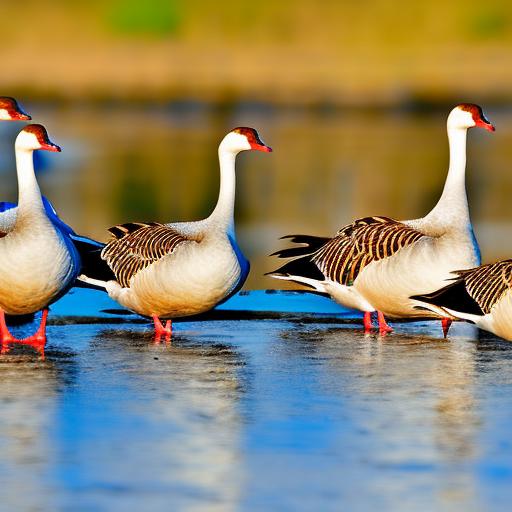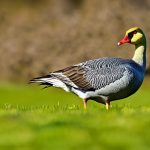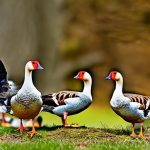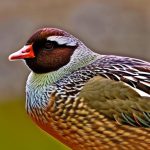Geese are fascinating creatures known for their unique mating behavior and lifelong partnerships. Understanding their mating behavior and relationships can provide insights into the complexities of animal behavior and the importance of social bonds in the animal kingdom. In this article, we will explore the mating behavior of geese, the concept of monogamy in geese, the establishment of pair bonding, the formation of lifelong partnerships, factors influencing mate fidelity, geese mating rituals, breeding habits, social structure, family dynamics, and the longevity of geese relationships.
Key Takeaways
- Geese are monogamous birds that form lifelong partnerships with their mates.
- Pair bonding in geese is strengthened through courtship rituals and displays of affection.
- Factors such as habitat quality and mate availability can influence mate fidelity in geese.
- Geese breeding habits involve building nests and incubating eggs together with their mates.
- Geese have a strong social structure and family dynamics, with parents and offspring often staying together for extended periods of time.
Mating behavior of geese
Geese are known to be monogamous birds, meaning they form long-term pair bonds with a single mate. The process of choosing a mate begins with courtship rituals. Male geese will engage in elaborate displays to attract females. These displays often involve honking loudly, flapping their wings, and performing various physical movements. The female geese will observe these displays and choose a mate based on their performance.
Monogamy in geese
Monogamy in geese refers to the formation of a long-term pair bond between a male and female goose. This bond is typically exclusive and lasts for the duration of their lives. Monogamy is not common among all bird species, as many birds engage in polygamous or promiscuous mating behaviors. Geese are unique in their commitment to a single partner.
Pair bonding in geese
Pair bonding is an essential aspect of geese mating behavior. It involves the establishment of a strong emotional connection between a male and female goose. Pair bonding is crucial for successful reproduction and raising offspring. Geese form pair bonds through a combination of courtship rituals, shared activities such as nesting and feeding, and mutual grooming.
Lifelong partnerships in geese
Geese are known for their lifelong partnerships, which means they stay together with their chosen mate until one of them dies. This long-term commitment is beneficial for both geese and their offspring. Lifelong partnerships provide stability and support for raising young, as both parents contribute to the care and protection of their offspring.
Factors influencing mate fidelity in geese
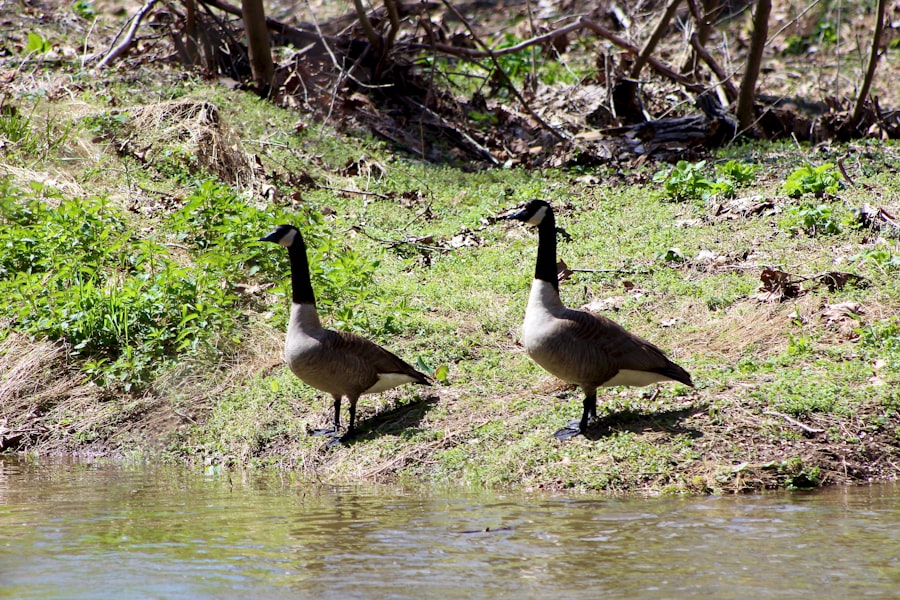
Several factors can influence mate fidelity in geese. One of the primary factors is the quality of the pair bond. If the bond between a male and female goose is strong, they are more likely to remain faithful to each other. Other factors include the availability of suitable mates, competition from other geese, and environmental conditions. For example, if resources such as food and nesting sites are scarce, geese may be more likely to stay with their current mate rather than seek out a new one.
Geese mating rituals
Geese engage in elaborate mating rituals that serve to strengthen their pair bonds. These rituals often involve synchronized movements, vocalizations, and displays of affection. For example, during courtship, male geese will often bow their heads and extend their necks towards the female as a sign of submission and affection. These rituals not only help establish and maintain pair bonds but also serve as a form of communication between mates.
Geese breeding habits
Geese have specific breeding habits that contribute to the successful reproduction and survival of their offspring. After forming a pair bond, geese will search for a suitable nesting site together. Once they find a suitable location, the female will lay her eggs, usually in a nest made of grass and feathers. Both parents take turns incubating the eggs and protecting the nest from predators.
Geese social structure
Geese have a hierarchical social structure within their flocks. This social structure is based on dominance and determines the order in which geese eat, mate, and interact with each other. The dominant pair in a flock typically has priority access to resources and mates. Other geese in the flock may form subordinate relationships and follow the lead of the dominant pair.
Geese family dynamics
Geese families are highly cohesive units that work together to raise their young. Both parents play an active role in caring for and protecting their offspring. They take turns incubating the eggs, finding food, and defending the nest from predators. Geese families often travel together in a single-file line, with the parents leading the way and the goslings following closely behind.
Geese relationship longevity
Geese relationships can last a lifetime, with pairs staying together until one of them dies. This longevity is beneficial for both geese and their offspring. Lifelong partnerships provide stability and support for raising young, as both parents contribute to the care and protection of their offspring. Additionally, long-lasting relationships allow geese to develop a deep emotional bond with their mate, enhancing their overall well-being.
Geese mating behavior and relationships are complex and fascinating. Understanding these behaviors can provide insights into the importance of social bonds in the animal kingdom. Geese form lifelong partnerships through courtship rituals, pair bonding, and shared activities. Factors such as mate fidelity, mating rituals, breeding habits, social structure, and family dynamics all contribute to the success of geese relationships. By studying geese behavior, we can gain a deeper appreciation for the complexities of animal relationships and the importance of understanding and preserving their natural habitats.
If you’re interested in learning more about the fascinating mating habits of geese, you might also enjoy reading this article on “Do Geese Keep the Same Mate?” It delves into the monogamous nature of geese and explores whether they truly stay faithful to their partners for life. Discover more about these loyal avian creatures and their unique mating rituals by clicking here.
Meet Walter, the feathered-friend fanatic of Florida! Nestled in the sunshine state, Walter struts through life with his feathered companions, clucking his way to happiness. With a coop that’s fancier than a five-star hotel, he’s the Don Juan of the chicken world. When he’s not teaching his hens to do the cha-cha, you’ll find him in a heated debate with his prized rooster, Sir Clucks-a-Lot. Walter’s poultry passion is no yolk; he’s the sunny-side-up guy you never knew you needed in your flock of friends!

